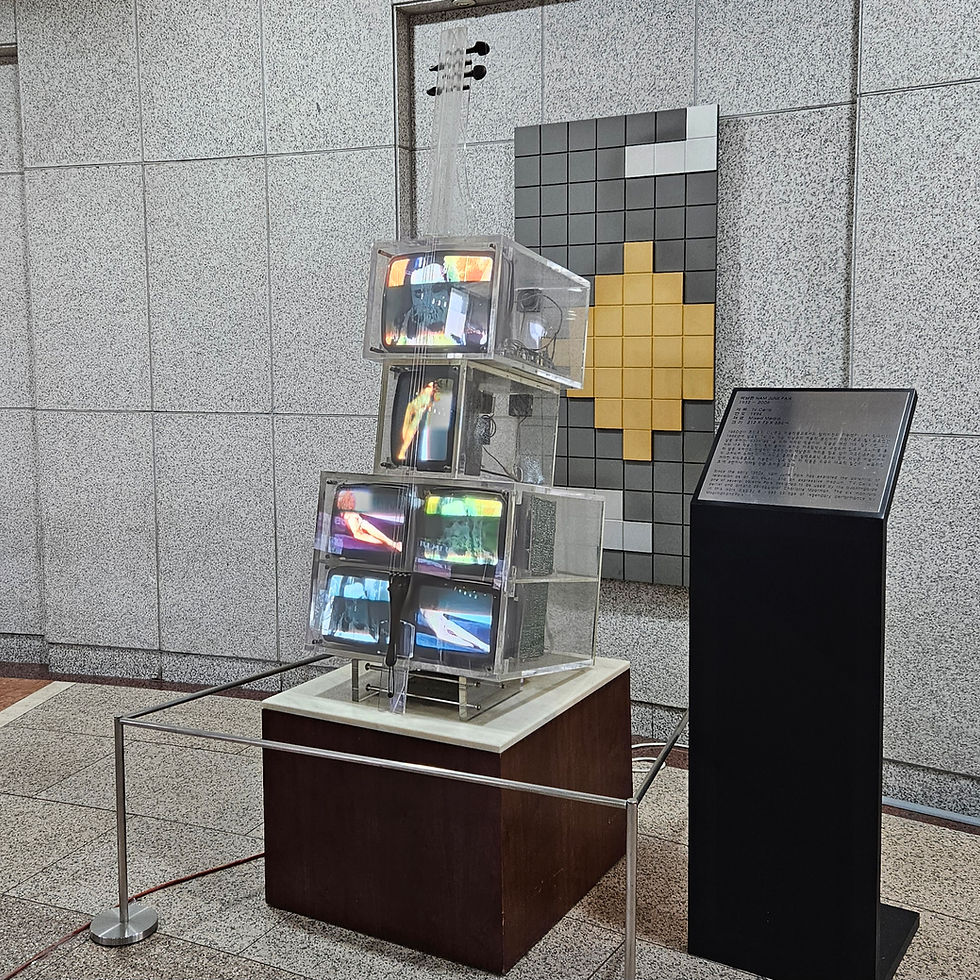On the Posthuman and the “Post”-Pandemic
- Stefan Greenfield-Casas

- Jun 20, 2021
- 4 min read
Updated: Dec 29, 2021
This post will be a mess because my thoughts and emotions are a mess right now. But I also need to write these thoughts down as soon as I can. [p.s. This ended up approaching a diary entry. Welcome to my world.]
Three years ago I wrote a seminar paper on what I called the pop posthuman existential voice. In the paper I identified a trend wherein posthuman beings—cyborgs, androids, robots, AI—gained a sense of Being from their voice and, more particularly, their ability to sing. While in the term paper I gave a few examples, the centerpiece of my argument was Simone from NieR: Automata. Indeed, I presented a shorter version of this paper at NACVGM the following year, again focusing on NieR.
Since then, the world has changed. We, collectively, are traumatized and now attempting to navigate a “post”-pandemic world. Because of the psychic and emotional damage I’ve undergone this last long year, I have barely been able to think, focus, or work. I owe much to my students and to two streamers in particular for giving me a space to Be, virtual though it was, that was outside of my head. Even now, with things on a relative upswing, I have been listless. I am languishing, to use a term that was recently offered in the NYT. Not quite a depressed being, but one a self away from his shadow, disinterestedly observing the world around, filtered and mediated; apathetic and bored.
Most recently, within the last few weeks, I realized how long it’s been since I’ve felt moved by anything in a drastic way. To return to my opening, I think my time spent playing NieR: Automata was the last time I was truly and fundamentally moved by something. I still enjoy music, movies, games, etc., but nothing in the last few years has totally affected me in a life-changing way since then. Maybe the closest was Keep Your Hands Off Eizouken!, which I wrote a post about last year. This is, maybe, to be expected. On the one hand, I am older. I have seen, heard, read much more than I have when I was younger. On the other hand, going through grad school, I have both learned how to think hypercritcally, as well as been force fed thousands, maybe even tens of thousands of pages worth of theory, close readings, history, and the like in a too-short amount of time. The one-two punch landed by these hands is cruel. In short, it’s harder and harder to impress me.

Tappei Nagatsuki and Eiji Umehara’s Vivy: Fluorite Eye's Song finally broke that languid curse. The show is about a songstress (idol) AI (android) named Diva (AKA Vivy). Hopefully that sentence alone can clue you into why I was interested in it. Her birth mission, her raison d'être, is to “sing from her heart” to make people happy; quickly added to this mission is a second one: to prevent the AI uprising and mass genocide of humanity 100 years in the future. The story, told over 13 episodes, spans this 100 years with Vivy growing as a person (perhaps a loaded term, but I stand by it) and a musician in this time. And because it’s probably not clear from that blurb—this can be a hard show to watch. While I won’t go into specifics, it deals with suicide, PTSD, and, again, genocide (which we see a part of in the opening scene). It's not all doom and gloom, but it's always there, hovering in the middleground. I suppose spoilers for the last episode in the next paragraph.
I was quickly interested in this anime. Again, even in my languishing, it’s not that I didn’t enjoy or like things—it just felt like there was something preventing me from experiencing it fully. Even still, Vivy caught my attention with its premise. I had written about this phenomenon, after all, and I wanted to see how it played out in this story. I cried, I think, at least four times across this show, including twice on my final viewing when I binged the last three episodes as a unit. And that’s because I almost feel as though this story was written for me. So many topics that have been floating around my head, which I feel like I haven’t had the time, energy, bandwidth, etc., to take on, were taken up in this show. Memory, repetition, the posthuman existential voice. I was sobbing with one of the last spoken lines of the show: “Because to me, pouring my heart into something means singing along with my memories.” It was cathartic. Her philosophy, her song, what she did for her mission, how she confronted her trauma. I finally reached my limit. The languid film was ripped, and I felt as I have not in years. I cried ‘til the end of the episode. Then I grabbed my laptop, and here we are.
I have struggled to work this last year. Struggled to process my thoughts, struggled to write whatever processed thoughts I had down, struggled to find inspiration to move forward again. I’ve put out queries to friends and colleagues, asking them what has recently moved them. I’ve been going through their suggestions to no avail. Of course this makes sense at some level—we are all unique persons and each have our own memories, biases, aesthetic sensibilities. So I cannot overemphasize what it means that I was 1) inspired to write this post immediately upon finishing Vivy and 2) that I was able to write it with little to no pause ‘til completion. I’m not sure if this same drive and inspiration will carry over into my other projects, the other tasks I need to complete. Tomorrow is a new day; but I will at least carry with me the memories and feelings of this night.
20.VI.2021



Comments